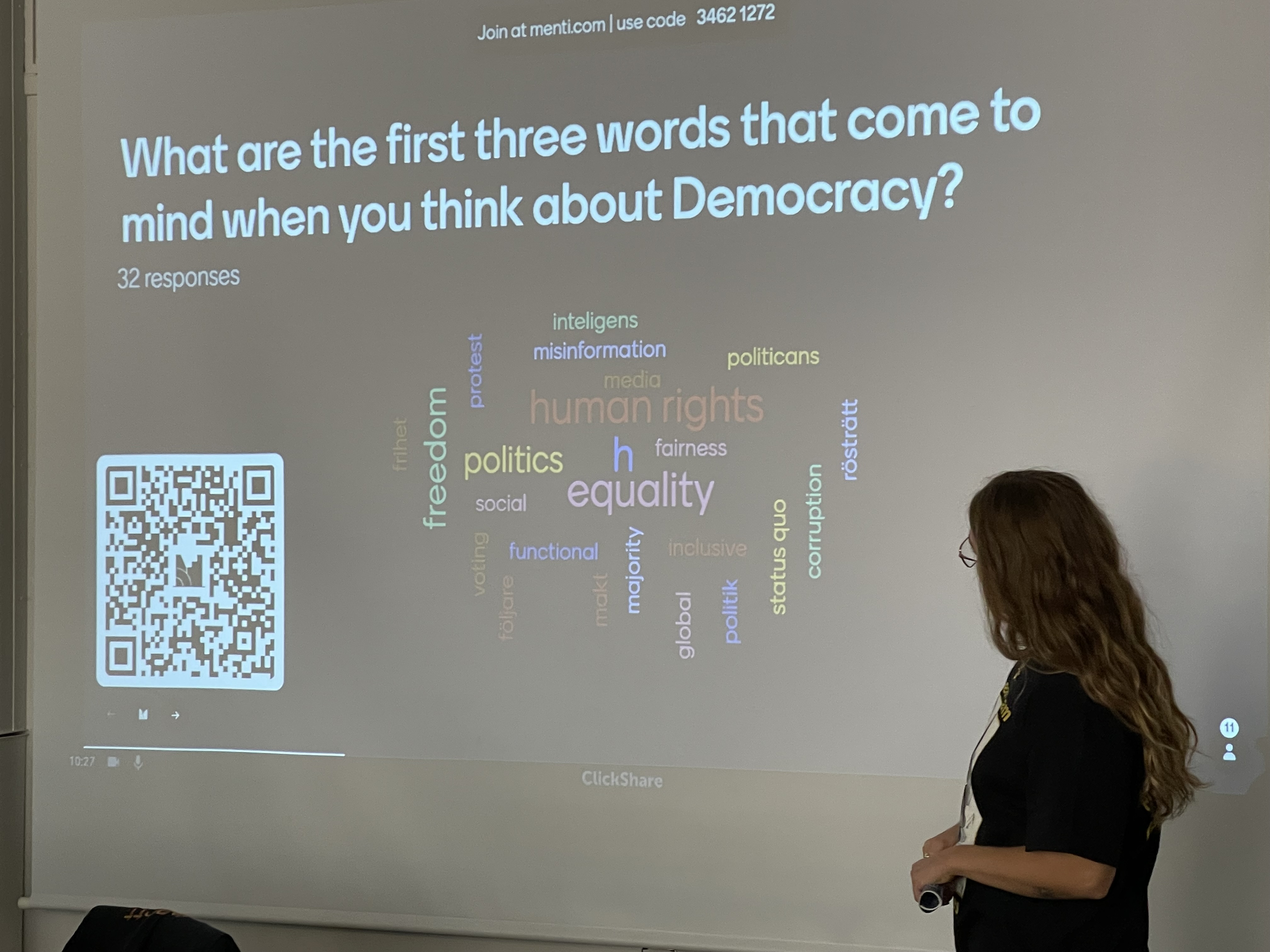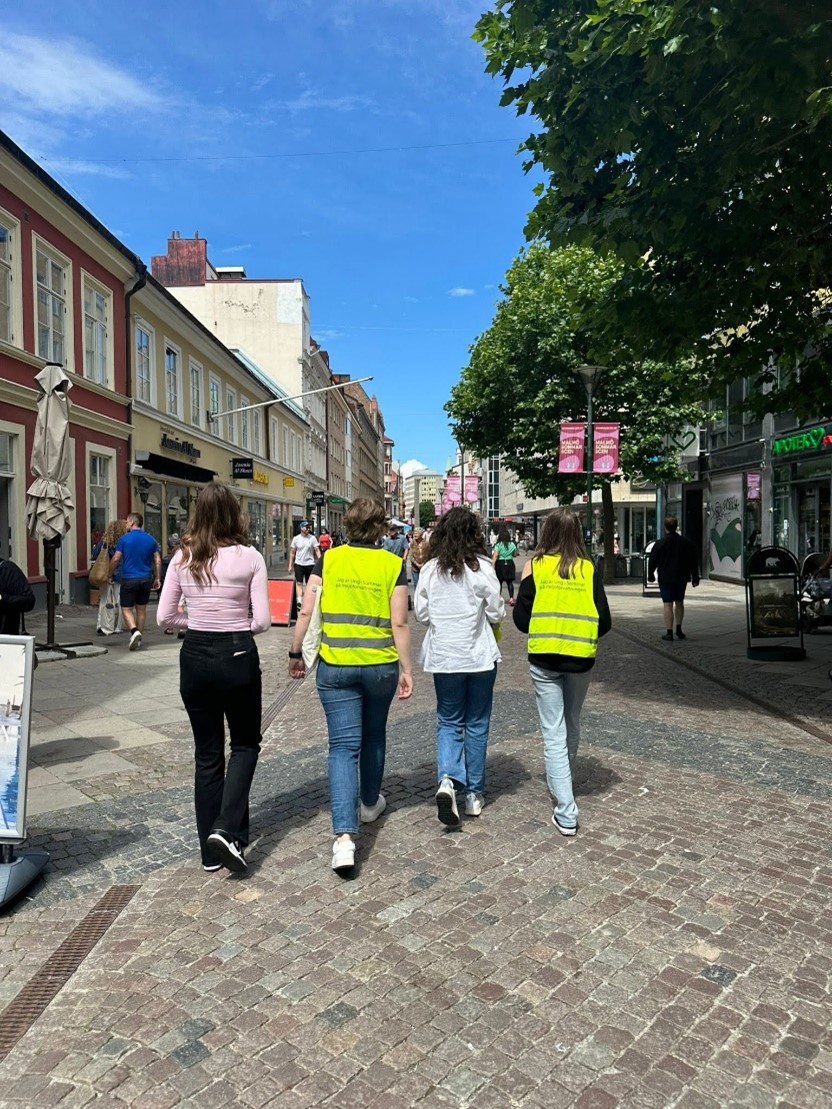In July, the International Youth Think Tank (IYTT) took part in two Speak Up events this summer, hosted by Speak Up partners Malmö and Oldenburg. Three IYTT-youth fellows went to Malmö to pilot a 3 day workshop for young people. The workshop took place during a summer camp which involved 25 young people around the age of 16-19. At the end of July,the city of Oldenburg had invited young people between the ages of 16 and 19 to exchange ideas about democracy. To moderate this event, two youth fellows from IYTT traveled to Oldenburg.
What is the idea behind these workshops?
For these workshops, IYTT partnered with the city of Malmo and the city of Oldenburg. The two cities hosted the workshops and invited local youth to participate, while the IYTT send their youth fellows to moderate the workshops. The workshops took place over three days in which youth between the age of 16 and 19 performed talks with strangers on the streets to identify local challenges and develop strategies to combat those. These conversations are called ‘Open-Chair-Democracy-Talks (OCDTs)’ and encourage youth to step into conversations with the citizens of the cities. These conversations are guided by four questions, such as ‘’If I say democracy, which three words come to your mind?’’. The aim is to spark meaningful discussions, which should empower individuals to voice their thoughts and concerns, creating a sense of agency and active citizenship. The youth, on the other hand, gain inspiration and valuable insights.

What activities took place during those days?
While the first day focused on an introduction, discussions about democracy and a first try of the OCDT’s, the latter two days pivoted around problem identification and solution brokering. The participants quickly adapted to the OCDT’s, put up two chairs into busy city center spots and invited citizens to talk with them about democracy. On the last day, the solutions were presented to local decision makers and experts, and even to the mayor of Oldenburg.
It taught them that they know more about democracy than they initially thought and that they have the capacity to formulate ideas and opinions about complex topics.
What were the results of the workshops?
At the end of the workshop the young people pitched three solutions, informed by these conversations, to local decision makers and experts. They worked closely with each other to overcome disagreements amongst themselves, so the solutions represented the range of opinions within the group.
In Malmö, the first solution included a tax on scrolling as they understood the dangers to mental health that excessive phone exposure caused. The second solution gave people a voice on the allocation of taxes. It included an online form where voters can show that they want their taxes spent on and they can then compare this to decision makers. Although it would not have a direct impact on decisions, it could better inform citizens and would give representation to their wishes.
The final solution was covering the issue of discrimination. The group came up with a system of negative points for people who were caught carrying out discriminatory acts. This should make it difficult for them to get jobs in public services such as teaching or the police.
In Oldenburg, the participants came up with two solutions. They developed a concept of a youth citizen council with representatives from each of the 20 schools in Oldenburg. The youth citizen council should then work closely with the administrative body of the city. A second idea was a political discussion room specifically for women, with a daycare corner for children and varying workshop topics.
How did everyone experience the workshops?
Overall, the workshop had clear value for the young people involved, with fruitful and eye opening conversations which they felt they were not normally involved in. It taught them that they know more about democracy than they initially thought and that they have the capacity to formulate ideas and opinions about complex topics. An additional benefit in Malmö, was that the summer camp provided an arena where young people from all parts of the city could meet and discuss, something that normally does not happen since the youth tends to stick to their own schools or city districts.

